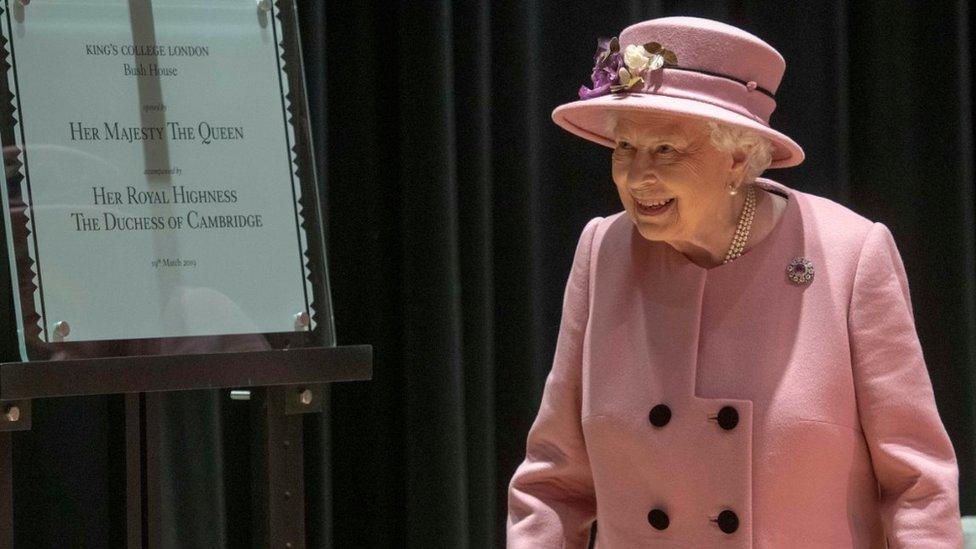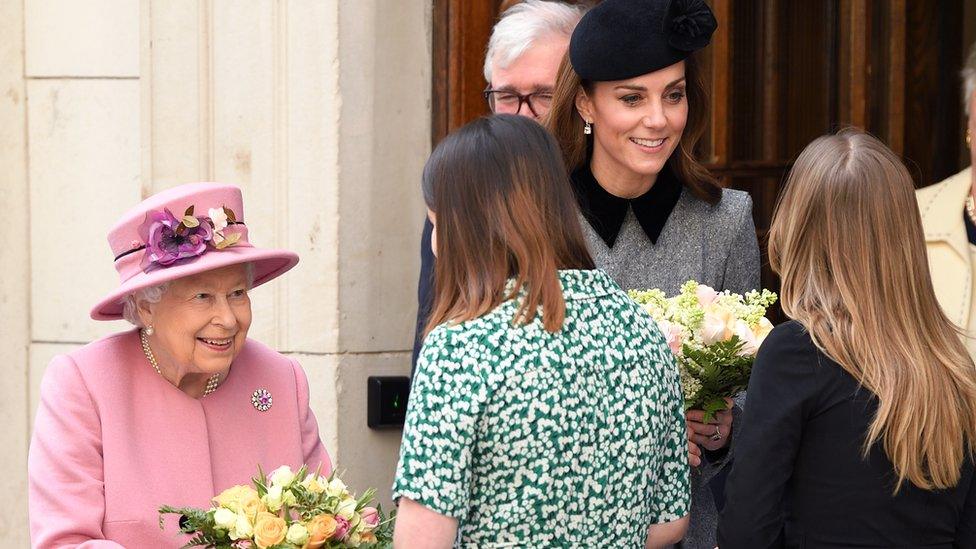King's College London sorry over royal visit student bans
- Published

The Queen met researchers and scientists when she formally opened Bush House - although some students were not welcome
King's College London (KCL) has apologised and admitted it was wrong to ban a group of students from campus during a royal visit.
The Queen and the Duchess of Cambridge visited the university's Strand Campus on 19 March to open Bush House.
One staff member and 13 students linked to campaigning groups were denied access to the campus, causing one student to fear he would miss an exam.
The acting principal said KCL's actions that day "did not meet our values".
Prof Evelyn Welch added that a report into the university's actions was "uncomfortable to read" and that the leadership team "apologise wholeheartedly".
The investigation found the university had breached its own policies regarding protection of personal information and the General Data Protection Regulation (GDPR).
Following protests at university events on both 4 March and 18 March, police contacted the university's head of security to express concerns of an "increased risk" during the royal visit.

The Queen and the Duchess of Cambridge visited the campus the day after a protest at the university's council meeting
The card access for a list of people linked to groups including the Intersectional Feminist Society and Action Palestine was then blocked, without those individuals being told.
One student reported he was worried he would miss an exam but "fortunately" security staff reinstated his card in time, the report said.
It added that another student was late for an assessed presentation and had to "beg to the point of tears to be let in".
The day after the royal visit there were protests outside KCL's Strand Campus.
The report concluded that the Estates and Facilities team had "overstepped the boundaries of their authority".
Prof Welch said it was "clear how the decisions taken in the run-up to and on 19 March have hurt our community".
She added: "The report shows that we need to take some actions to ensure that the values we uphold are applied consistently across our organisation.
"While individuals are identified, they should not be singled out as those who were solely responsible; as such we will be looking at the systemic underlying issues that we need to address at King's going forward."